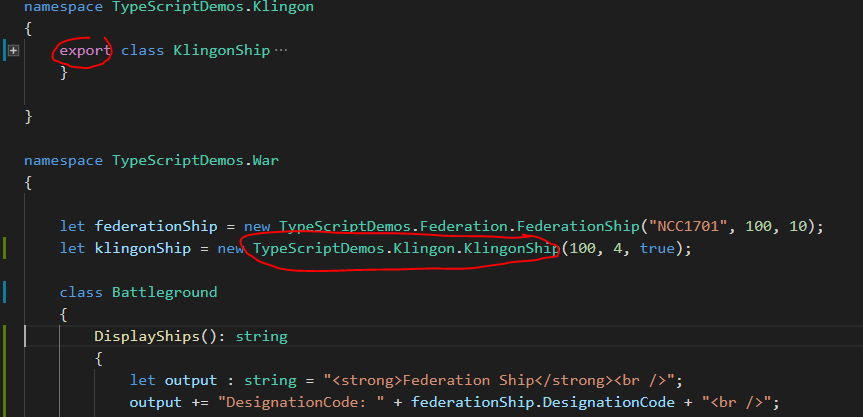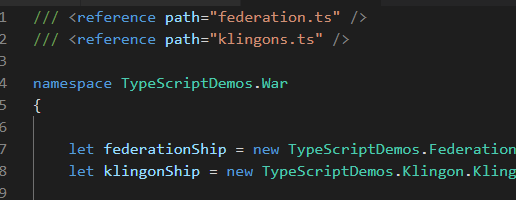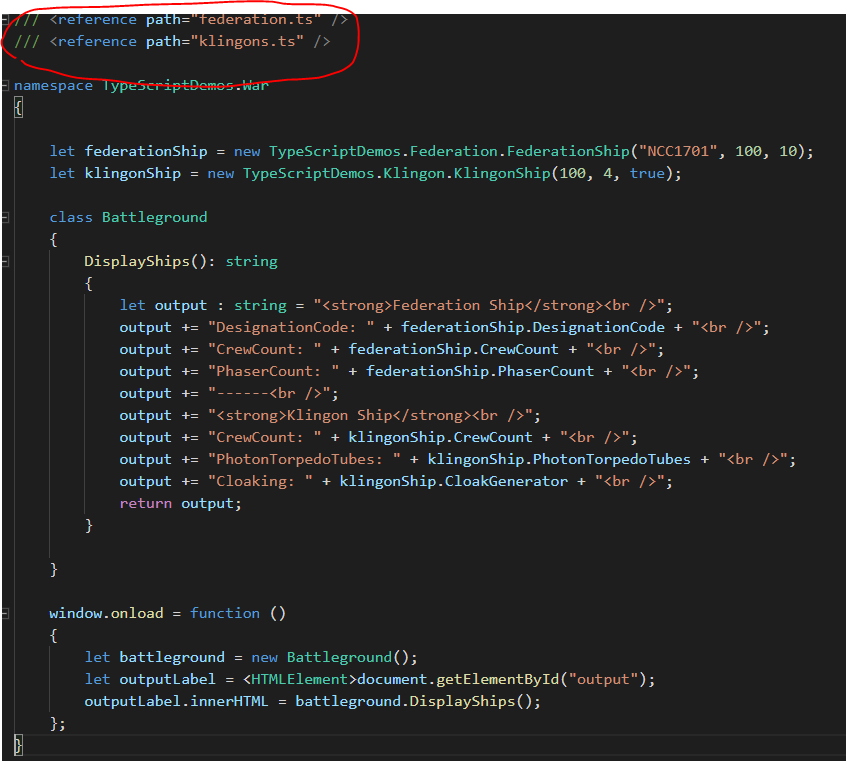Basics
- Access Modifiers
- Basic Concepts
- Build Task
- Compiling Manually
- Creating Paths
- Hierarchy
- http-server
- package.json
- Simple Example
- tsconfig.json - the /TypeScript project file
- tsconfig.json - multiple files
- Strict Null Checks
- Type Annotations
- Type Assertions
- TypeScript features
Challenges
Classes
- Abstract Classes
- Basics and Features
- Car Class Demo
- Class Fields
- Class Properties
- Constructors
- Inheritance (extends) Demo
- Function as Class Property
- instantiating new objects
- Spaceship Class Blueprint Demo
Debugging
Events
External Files
Flow Control
Forms
Functions
- Arrow Functions
- Arrow Functions 'this'
- Function Examples
- Function Scope Example
- Function with default arg values
- Function Types
- Global Functions
- Lambdas
- Optional Arguments
- Simple Arrow Functions Example
Html Elements
Installation
Interfaces
- Basics
- Duck Typing
- Employee Interface Example
- Implements vs Extends
- Interface Spaceship Contract Example
- Configuration Contract Example
Keywords
Modules
Namespaces
Operators
Reference Files
String
Types
TypeScript - Namespace Demo
Namespaces are great for organizing and encapsulating your code. If you code spans across multiple namespaces (files), you need to:
- a) export your namespaces so they can be accessible to other namespaces
- b) (preferred) compile them down into a single file or you will need to remember to make references to all js files (containing those namespaces) involved
Use export to make publicly accessible and reference to locate these namespaces from other
files.
Exporting: To access namespaces within other namespaces, you need to prefix the namespaces which should be
exposed with a export keyword. This will allow other namespaces to have public access to them. This works very much like importing
namespaces in c#.

Referencing your Exports: Unless you define your namespaces in the same file like shown in
the first image below (and you most likely will NOT), you will need to add reference tags in
your consuming code to tell TypeScript where it can locate this other code.

Finally, this is common sense but I'll state it anyways.
We need to make sure all of our compiled code gets loaded into the browsers.
In this example, we need to not only load namespaces.js, but we also need to
load federation.js and klingon.js.


Tip - if you want to combine all required js files into one single one
(klingon, federation, and namespaces/battleground) like "battleground.js" or something, you can
using -output file. See this page:
https://www.typescriptlang.org/docs/handbook/namespaces.html
.